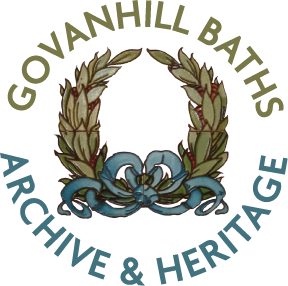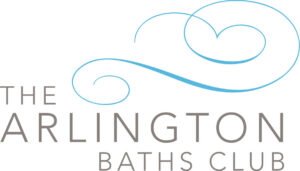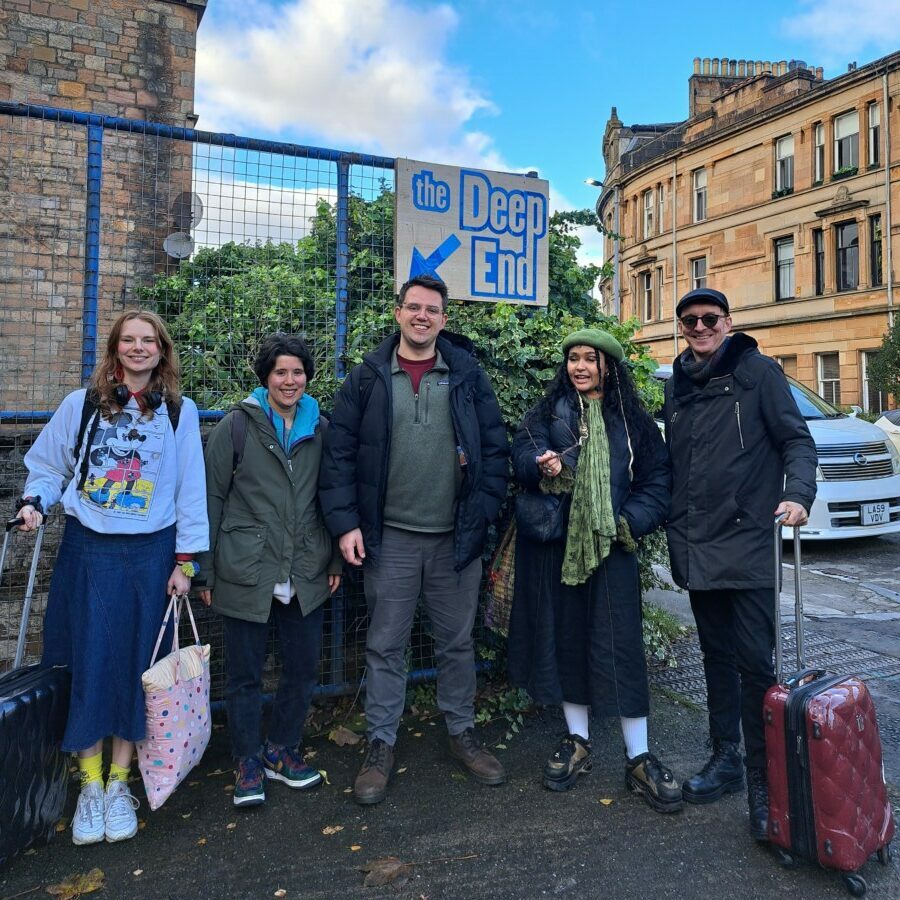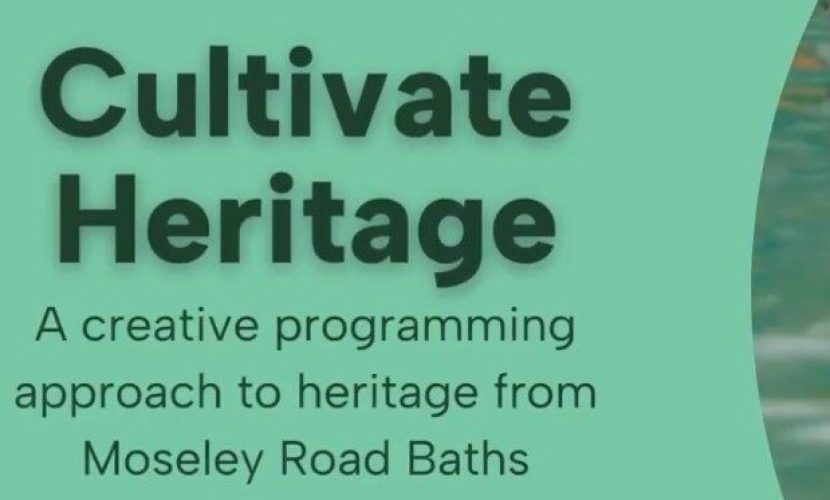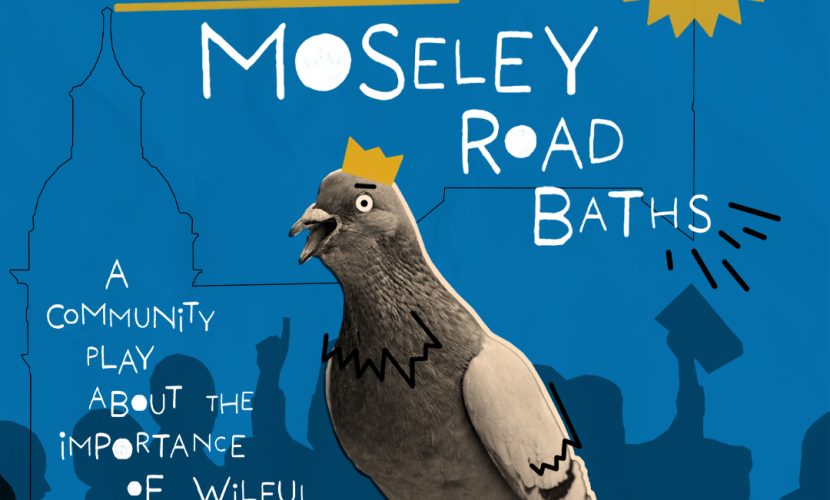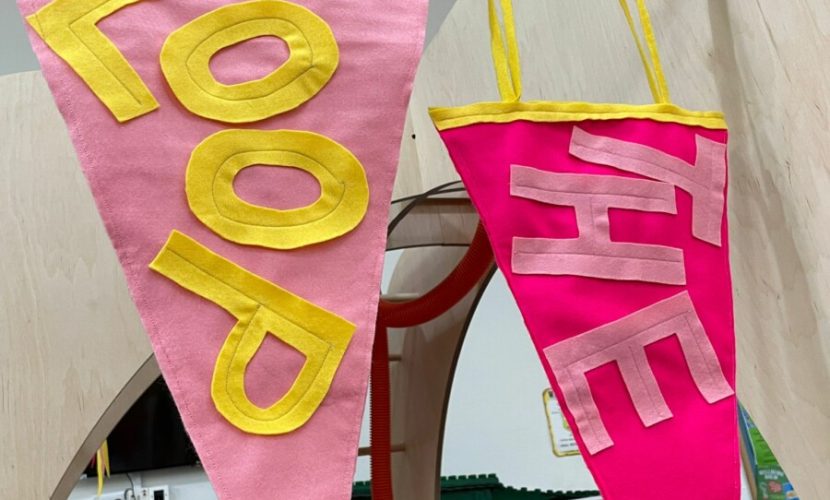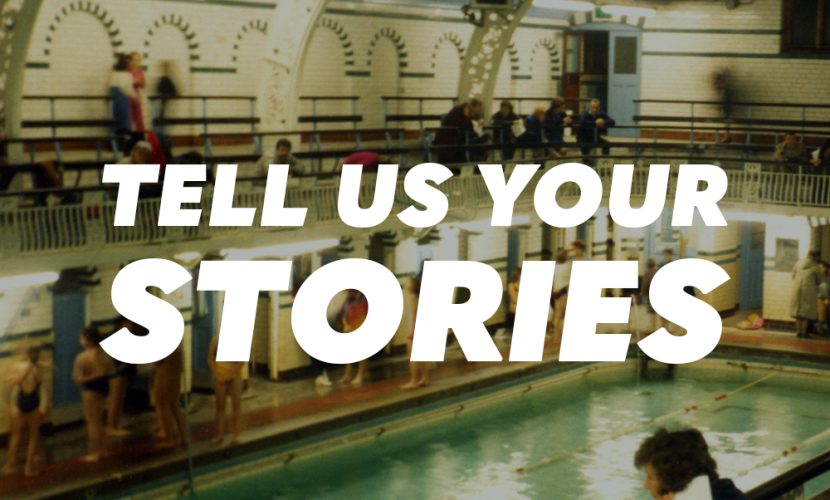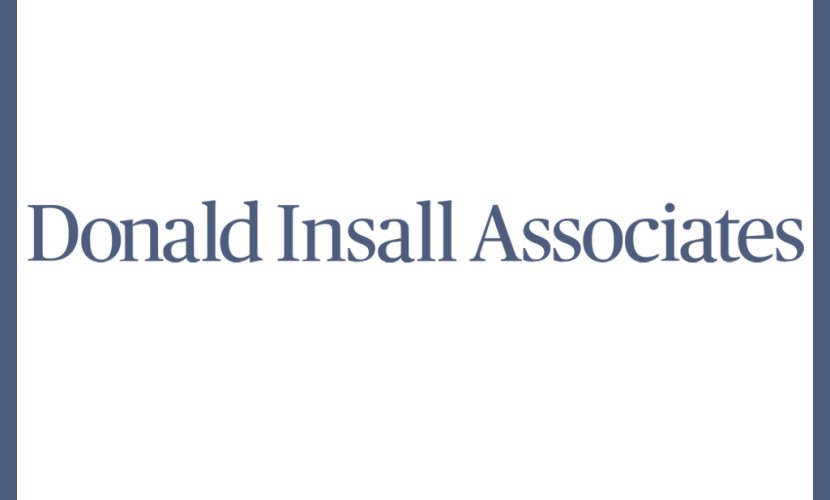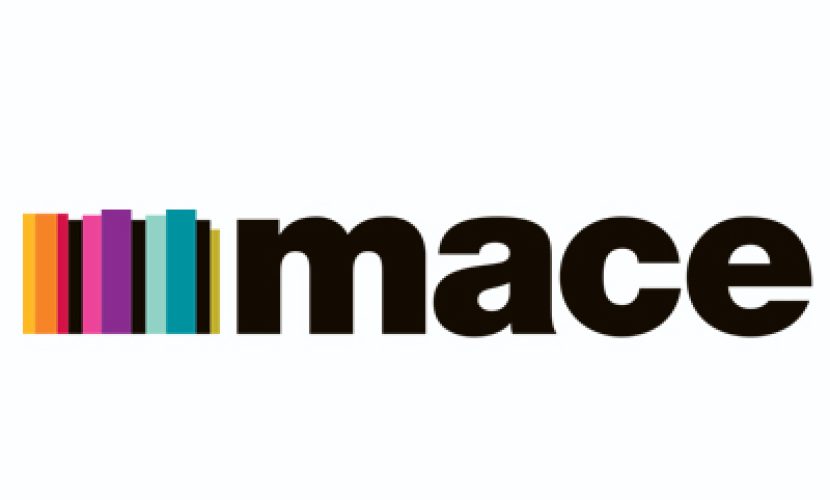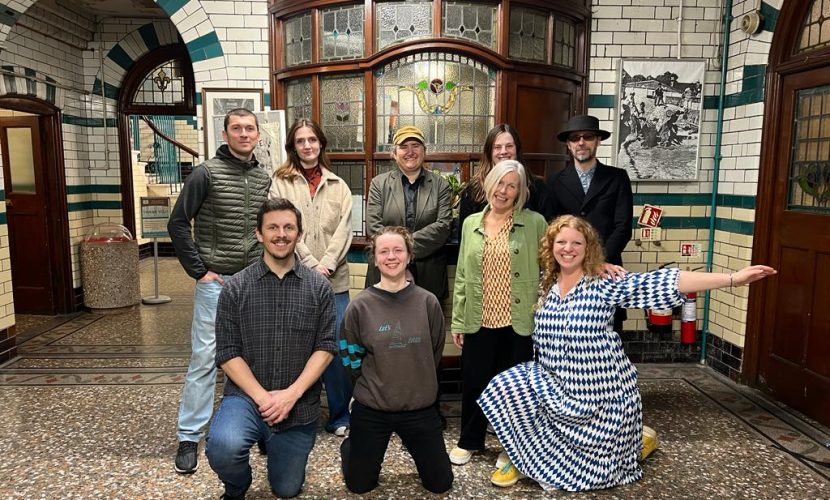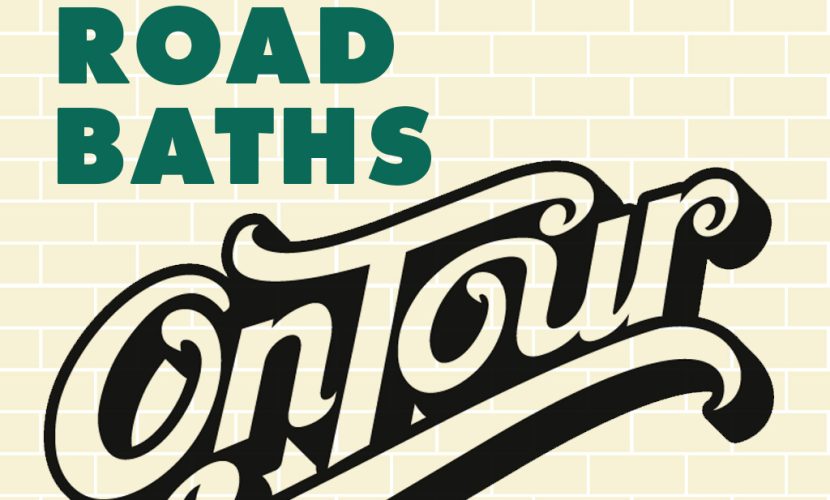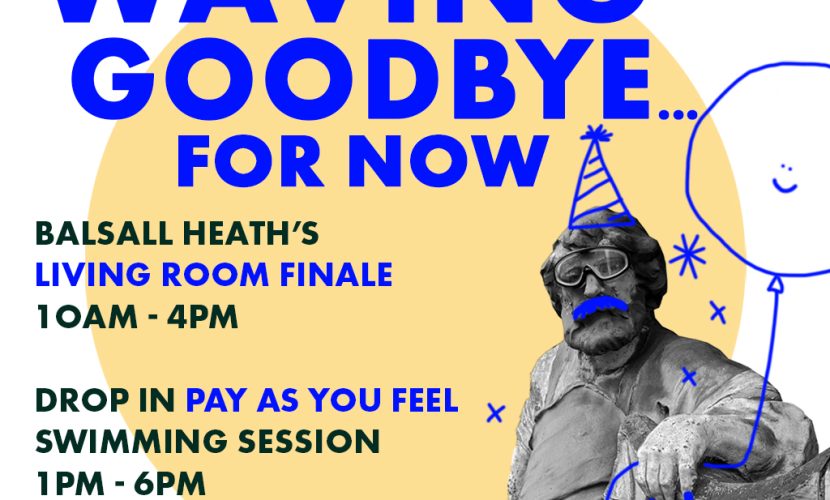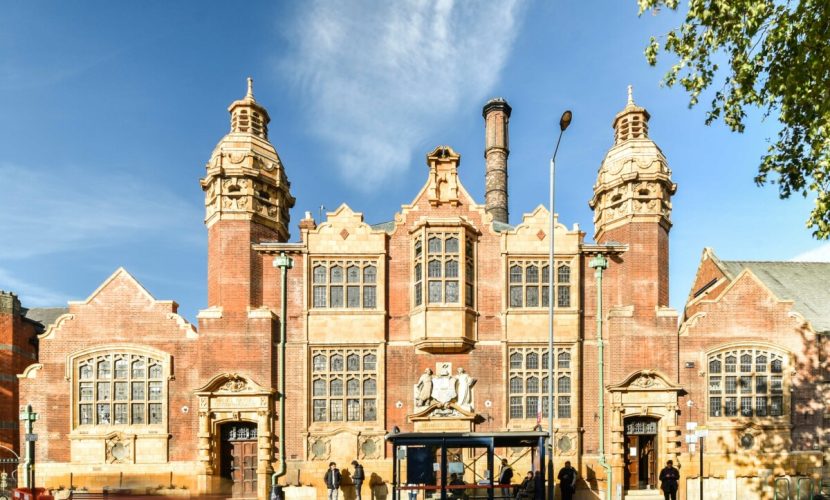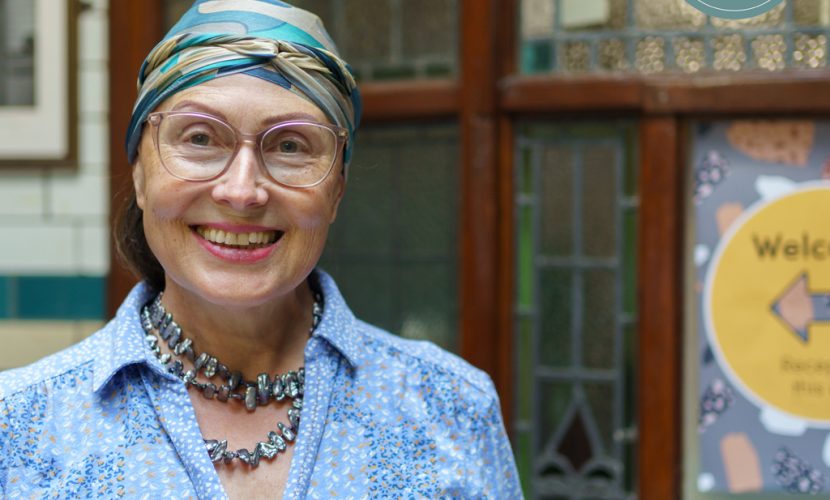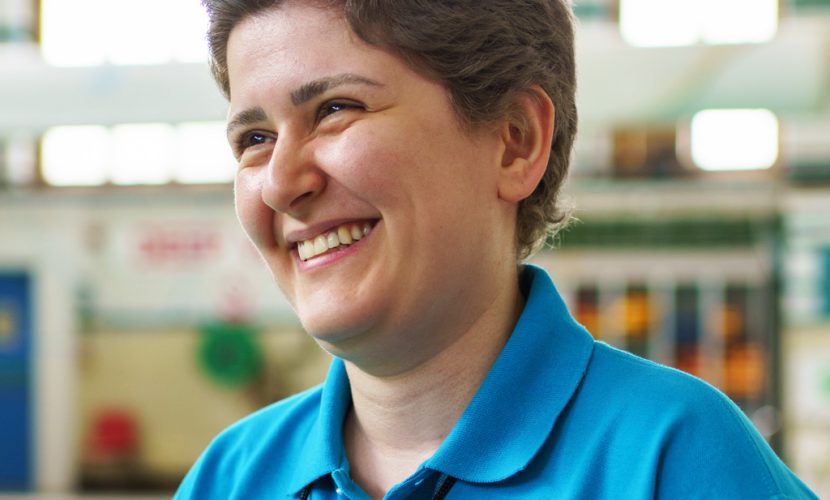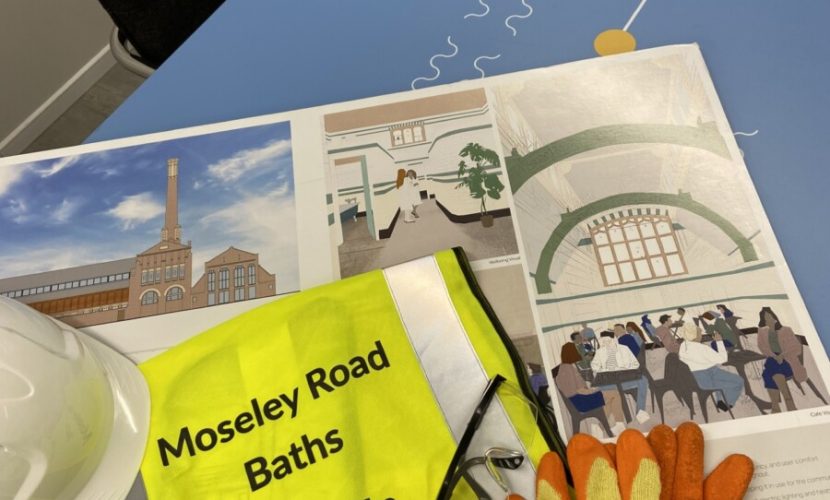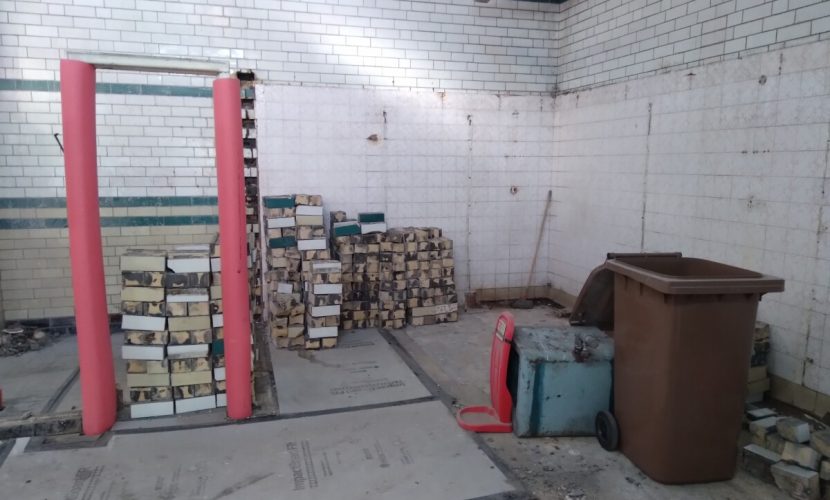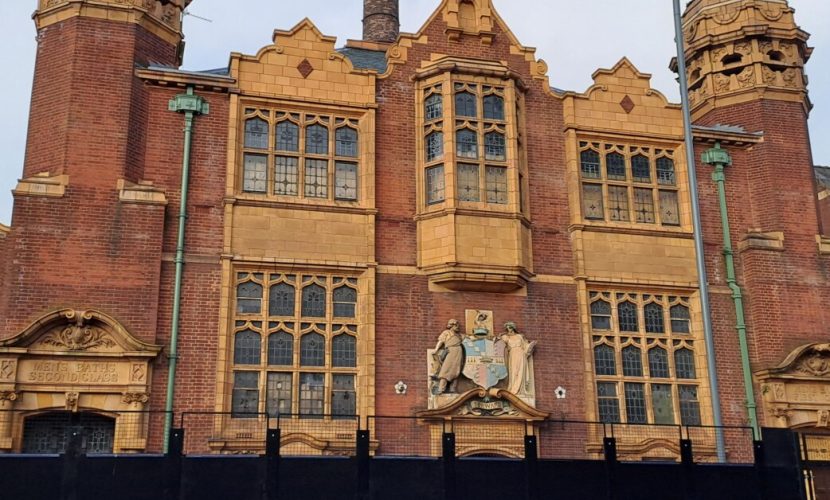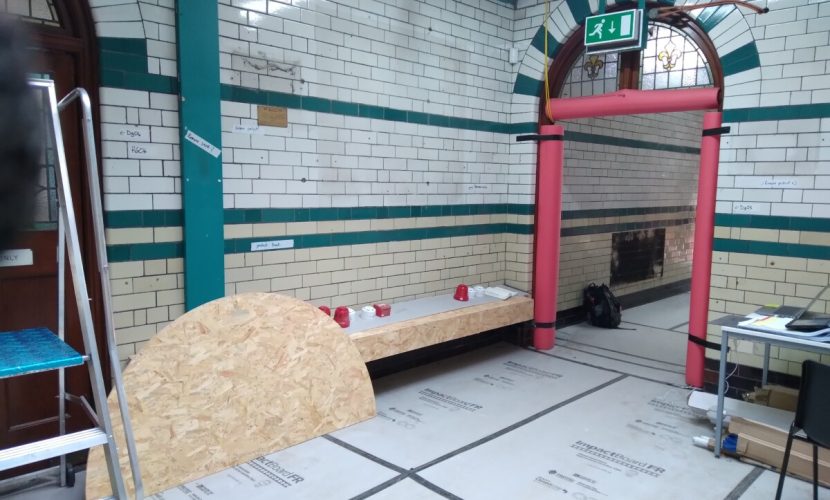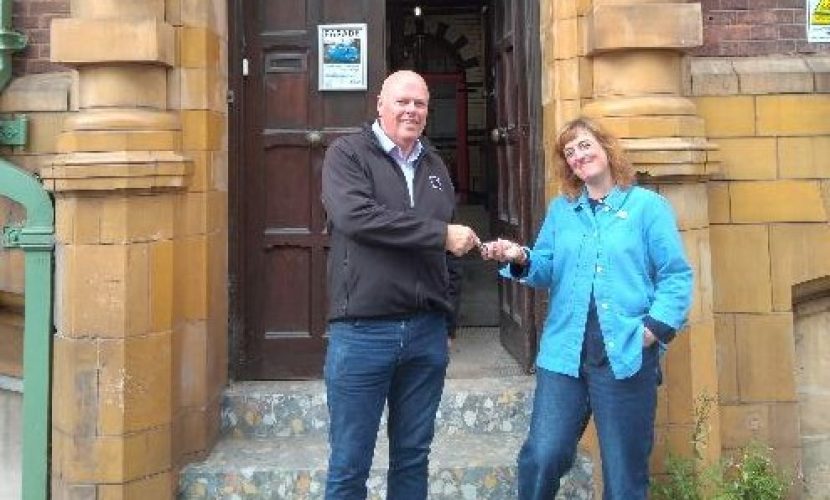In July 2022, the Moseley Road Baths team were invited to Govanhill Baths, Glasgow. As Govanhill Baths were a few steps ahead of us in their restoration journey we saw this as a great opportunity to learn how to maintain a presence within the community and deliver a dynamic programme whilst not having access to our building.
Govanhill did not disappoint. Fatima Uygun, the Govanhill Baths Community Trust (GBCT) Manager, and Paula Larkin, Trust Archivist, took the MRB team on a tour around the Govanhill area and to their off site projects. This included The Deep End, an arts and social enterprise space developed by the GBCT which includes artist studios, workshop spaces and room hire, as well as a fully-equipped ceramics studio. It is also home to several projects.
As well as a love for swim related puns, Moseley Road Baths and Govanhill Baths share a great deal. Not only do we share objectives and values in our work with our local communities but also a common thread in recent history that saw radical local activism save our buildings. Though our trip was short, we came back to Balsall Heath brimming with inspiration and eager to collaborate. The opportunity to offer our Young Curators the chance to curate an international collaboration (and a visit to Glasgow), and engage with a network of historic bath sites across the UK, was too good to pass.
We spoke to Gaby Songui, Creative Producer on the Young Curator project, who explains about the fantastic commissions and interviews that came out of the commission.
As part of Bathcasts, the young curators got to work with the wonderful Govanhill Baths in Glasgow. We commissioned Paula Larkin to produce their side of the project. This included, organising our interview space in a bathtub at Arlington Baths, being interviewed for the project, looking after our team for the day, and commissioning three artists. We were blown away by Paula’s knowledge of the baths, and really enjoyed talking to her. She even brought some carbolic soap to the interview!
The first artist commissioned by Paula was Maya Uppal. Maya is a poet and workshop facilitator, based in Glasgow. Their current research engages creatively with Art History and explores objects and archives by re-imagining stories of the past through different temporal lenses. Their poetry can be found in SPAM, MUCK, Mellom Press, Gutter Magazine, David Dale Gallery and is forthcoming in Brilliant Vibrating Interface. Maya wrote a wonderful poem for the podcast inspired by South Asian heritage at Govanhill Baths.
The second artist commissioned was Samar Jamal. Samar is a journalist and interdisciplinary artist from Glasgow. Her most recent work is in Greater Govanhill magazine, and has sought to amplify the voices of people from Govanhill, Scotland’s most diverse neighbourhood. Samar created a piece of music for the podcast inspired by the heritage of Govanhill Baths.
The final artist commissioned did something a bit different. We commissioned her to create a piece of ceramic art inspired by the project, and she made a beautiful bathtub! This was displayed at the ‘Bathcasts’ launch and will continue to live with Moseley Road Baths. Amelia Rowe is a Glaswegian community artist. She enjoys making things and painting things. Small detailed things and large colourful things mainly! She happened to live round the corner from Govanhill Baths during the building occupation and has followed its fortunes closely from that time. The opportunity to dig into the archives to produce new art is a treat for her and she’s especially grateful for the help of Govanhill Baths Ceramics on this project.
To find out more about this incredible organisation, listen to episode 6 of Bathcasts!
Below is the detail and transcript of the sound piece ‘Resilience in Waves’ created by Samar Jamal.
Resilience in Waves
Written and performed by Samar Jamal
The narration in this sound piece is excerpts from several books written about Govanhill.
Baths Community Trust. The narration is a brief summary of pivotal points in Bath’s history. Including how the Baths were valued by the community and utilised by women and became a hub for community and resilience. As well as the closure and the subsequent occupation. Finally, the narration ends with feelings of hope and aspirations for the reopening of the Baths. With particular attention to the women’s only swimming facilities. The narration was translated by Rizwanna Saaed from English to Urdu, volunteer coordinator of The Feel Good Women’s Group. I felt Rizwanna was fitting for the translation as she was part of the community consultation for the reopening of the Baths and communicated the needs of the women who attend The Feel Good Women’s Group and their wish for women’s only swimming classes. The music was composed by the artist the Talking Tabla, the music includes both a Tabla and a Sitar which are intrinsic South Asian instruments that I felt captured the feelings of reminiscence for the past and determination for the future. I hope this piece reflects the consistent need for grassroots community spaces like the Baths throughout history and to this day and the communities persistence in making sure spaces like this remain open.
English narration of Resilience in Waves
Govanhill Baths Community Trust
1917 we opened our doors
They would say it’s finest in the kingdom
A place to swim, wash, celebrate, connect
A place for all working class women
A place for women to wash and dry the clothes outside of the house
A place to share your woes, meet your neighbours
There was camaraderie
People would go to the Steamie Ball
The wash house closed in 1990
40’000 women came here to swim
Then came the occupation in 2001
To protect the building
Women would say ‘No way ‘I’m going to the gorbals to swim’
Occupied for 140 days
But we will swim again
There will be no steamie
There will be women’s only swimming classes
For all women
United we will swim
You can also visit their website: https://www.govanhillbaths.com/Bios
